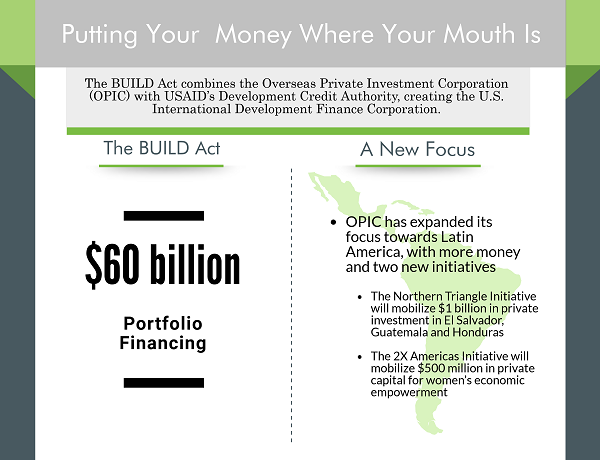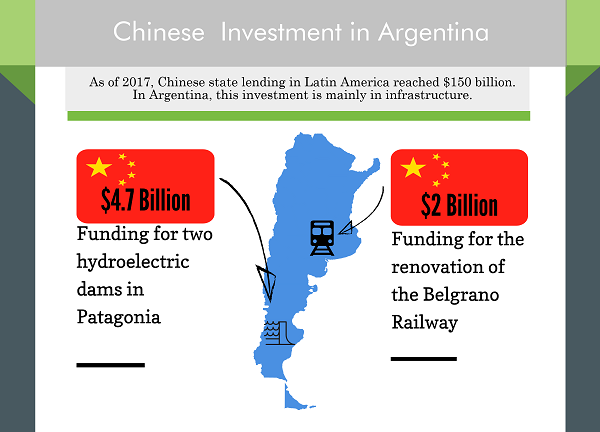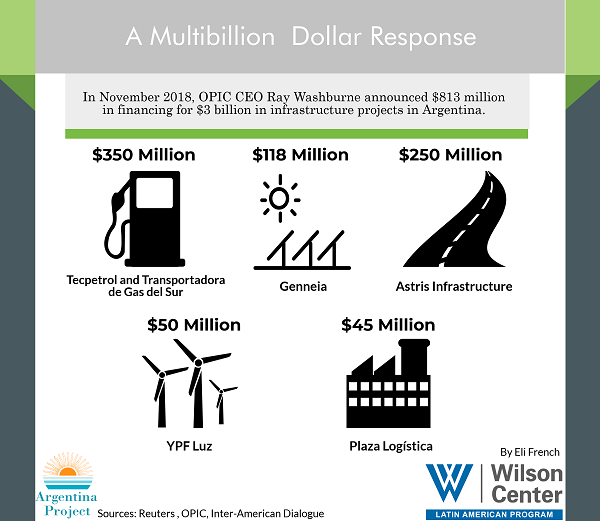
A blog of the Latin America Program

The BUILD Act: Countering Chinese foreign investment
In October 2018, the U.S. Congress passed the Better Utilization of Investments Leading to Development (BUILD) Act, broadening the mandate of the Overseas Private Investment Corporation (OPIC). Historically, OPIC has helped U.S. companies invest overseas. Now, its mission includes slowing China’s growing economic and geopolitical influence in the developing world, including in Latin America.
The BUILD Act aims to strengthen OPIC by vastly expanding its lending, and encouraging it to operate in countries that previously might not have qualified for OPIC-financed projects.
- Under the BUILD Act, OPIC will absorb USAID’s Development Credit Authority and be renamed the U.S. International Development Finance Corporation, with a $60 billion lending portfolio – more than twice OPIC’s current resources.
- For the first time, OPIC will take equity stakes in private sector projects; provide technical assistance; and issue loans in local currencies.
Under the Obama administration, OPIC was already broadening its presence in Latin America, but that trend has accelerated in the last two years.
- OPIC’s footprint in Latin America grew from 10 projects in 2016 to 21 in 2018. Today, the region accounts for a quarter of OPIC’s portfolio.
- In 2018, OPIC announced two new initiatives in Latin America:
- The Northern Triangle Initiative aims to mobilize $1 billion in private investment in El Salvador, Guatemala and Honduras. It focuses on the energy and agricultural sectors, and provides support for small businesses.
- The 2X Americas initiative aims to mobilize $500 million in private capital for women’s economic empowerment.

OPIC’s transformation reflects concern over China’s rapidly growing portfolio of infrastructure projects worldwide, including in Latin America, where the United States had long enjoyed unchallenged influence and economic dominance.
- From 2005 to 2017, Chinese state lending in Latin America totaled $150 billion, and President Xi Jinping has pledged a total of $250 billion in state and private investment in the region by 2025.
- OPIC’s expansion will not match that pace. “We are not trying to match them dollar-for-dollar,” Ray Washburne, OPIC’s CEO, has said.
- Instead, OPIC offers market-based alternatives, which the U.S. government argues address development needs without the potential pitfalls of Chinese support, such as corruption, labor abuses, environmental degradation and dependency. OPIC’s approach also differs in its focus on small- and medium-sized enterprises, and in its selection of projects.

So where does this leave Argentina?
- China has invested massively in infrastructure in Argentina, during previous leftist administrations and under the current center-right government of President Mauricio Macri, including for a multibillion dollar renovation of the Belgrano Railway, and for the construction of two hydroelectric dams in Patagonia.
- During President Trump’s visit to Buenos Aires in November 2018, OPIC announced $813 million in funding for projects in infrastructure, energy and logistics. They will also involve private investors, and cost over $3 billion in all. These include:
- $315 million for Tecpetrol and Transportadora de Gas del Sur for the construction of a natural gas pipeline and related projects in Vaca Muerta.
- $250 million for Astris Infrastructure to expand and upgrade a toll road.
- $168 million for Genneia and YPF Luz to construct and renovate renewable energy power plants.
- $45 million for Plaza Logística to improve logistics and management.

Latin America Program
The Wilson Center’s prestigious Latin America Program provides non-partisan expertise to a broad community of decision makers in the United States and Latin America on critical policy issues facing the Hemisphere. The Program provides insightful and actionable research for policymakers, private sector leaders, journalists, and public intellectuals in the United States and Latin America. To bridge the gap between scholarship and policy action, it fosters new inquiry, sponsors high-level public and private meetings among multiple stakeholders, and explores policy options to improve outcomes for citizens throughout the Americas. Drawing on the Wilson Center’s strength as the nation’s key non-partisan policy forum, the Program serves as a trusted source of analysis and a vital point of contact between the worlds of scholarship and action. Read more


Argentina Project
The Argentina Project is the premier institution for policy-relevant research on politics and economics in Argentina. Read more

Explore More in Weekly Asado
Browse Weekly Asado
Dengue Haunts South America’s Summers

Lessons from Costa Rica’s Economic Transformation

Women and Latin America’s Digital Revolution

